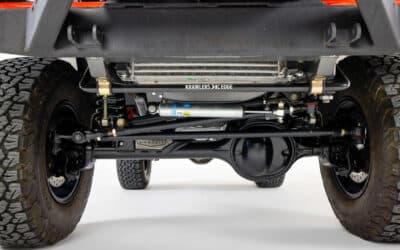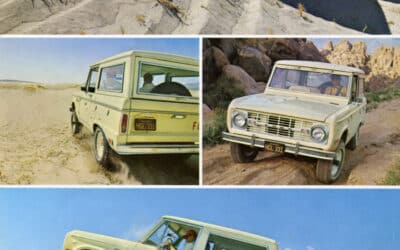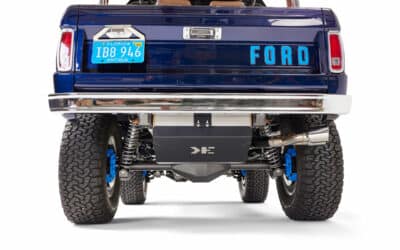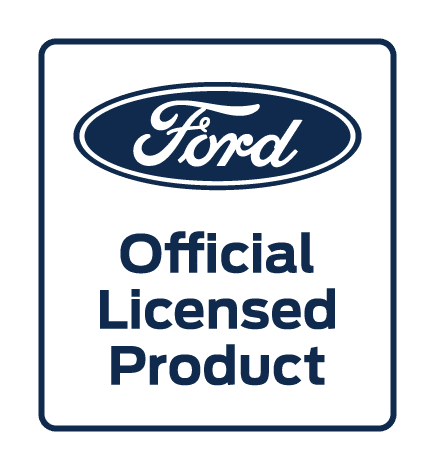The Early Ford Bronco is an iconic vintage SUV that has captivated off-road enthusiasts and collectors for years. The Classic Bronco was manufactured from 1966 to 1977 before Ford replaced it with the second-generation Bronco in 1978.
These vehicles hold a unique position in automotive history. One question that often comes up from Bronco owners (and potential Bronco owners) is what is the gas mileage in the Early Ford Bronco?
This post will dig deep into the factors that influence gas mileage, the impacts of engine replacements, and the role of tire size on the MPGs for an Early Bronco.
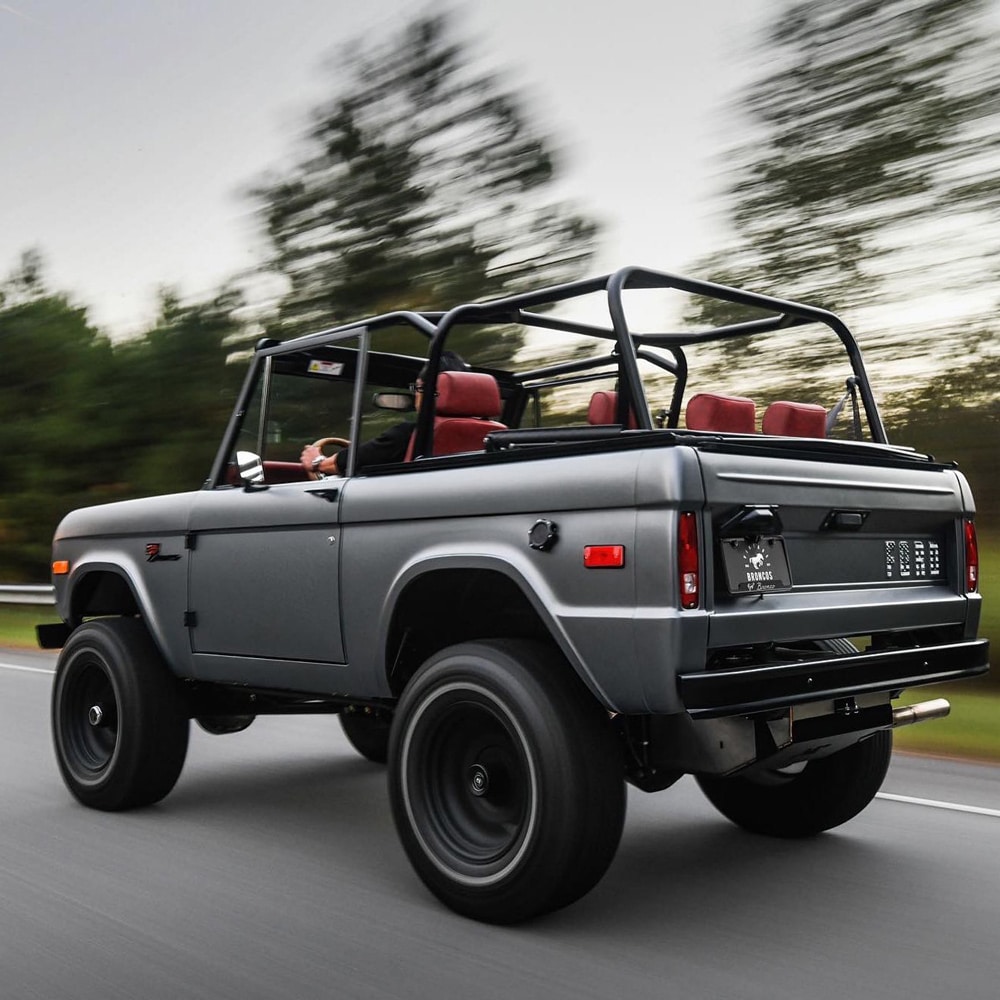
Photo Credit Vintage Broncos
Original Fuel Mileage for the Early Ford Bronco (1966-1977)
Understandably, due to the era’s technology limitations and design focus, the mileage for the early Ford Bronco wasn’t its standout feature. Each engine variant had its unique performance characteristics and different fuel mileage figures.
The 170 Inline 6 Bronco Engine (1966 – 1972)
The 170 Inline 6, the standard engine for the early Broncos, got an average of 12 miles per gallon (mpg). This engine produced 105 horsepower and 156 lb-ft of torque.
The 200 Inline 6 Bronco Engine (1973 – 1977)
Upgraded to the 200 Inline 6 in the later models, this engine saw slight improvements in mileage, getting an average of 10 mpg. This engine produced 120 horsepower and 190 lb-ft of torque.
The 289 V8 Bronco Engine (1966 – 1968)
The 289 V8 engine, an optional upgrade, provided more power but lessened fuel efficiency, recording an average of 10 mpg. This engine produced 200 horsepower and 282 lb-ft of torque.
The 302 V8 Bronco Engine (1969 – 1977)
The 302 V8, succeeding the 289, also had a lower gas mileage than the Inline 6 models, averaging about 8-10 mpg. The 302 engine produced 205 horsepower and 300 lb-ft of torque.
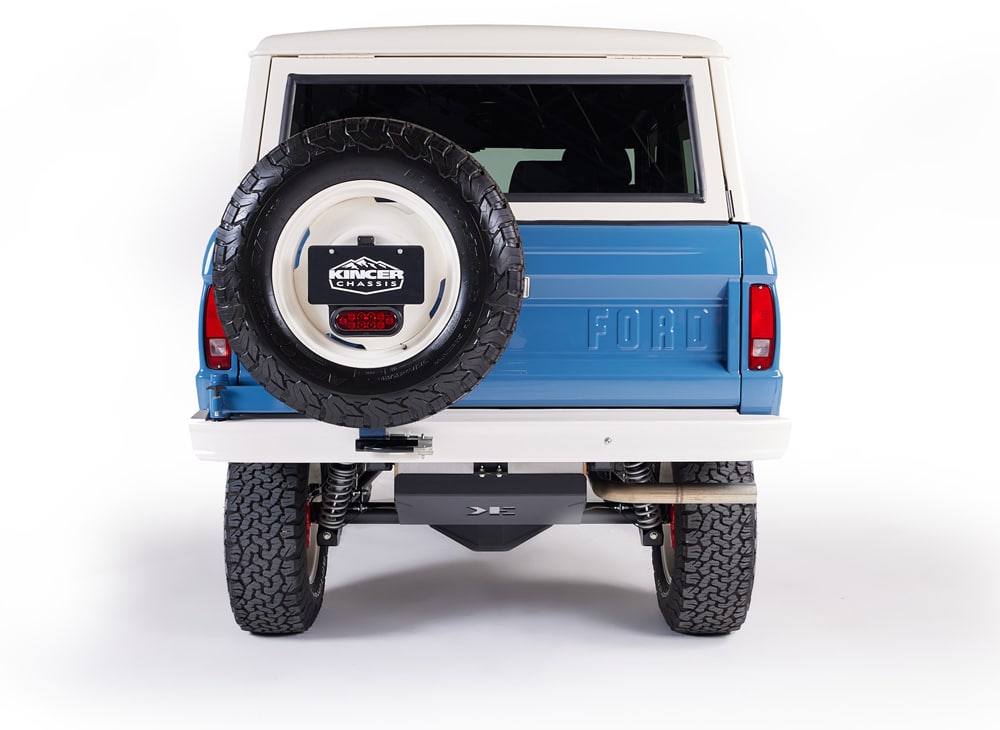
Factors that Impact Your Ford Bronco MPG
There are several factors that can impact the MPG of your classic Ford Bronco. Understanding these factors can help you make informed decisions about maintenance, engine upgrades, and tire choices.
Engine Condition and Tuning Impact Fuel Economy
A well-maintained engine tends to provide better fuel efficiency. Regular oil changes, clean filters, and proper tuning can help optimize your Bronco’s miles per gallon.
Driving Habits
Aggressive driving habits can reduce fuel efficiency. Smooth acceleration and braking, along with maintaining a constant speed, can improve fuel mileage.
Vehicle Weight
Additional weight in your vehicle can impact mileage. Try to keep your Bronco as light as possible for better fuel efficiency.
Updating Your Classic Bronco Fuel Tank
We offer a 23-gallon high-capacity Early Bronco Fuel Tank for increased fuel capacity that also includes a powder-coated skid plate for added protection.
Our gas tank upgrade enhances your Early Bronco’s performance, reliability, and off-road capabilities, while also providing peace of mind and convenience.
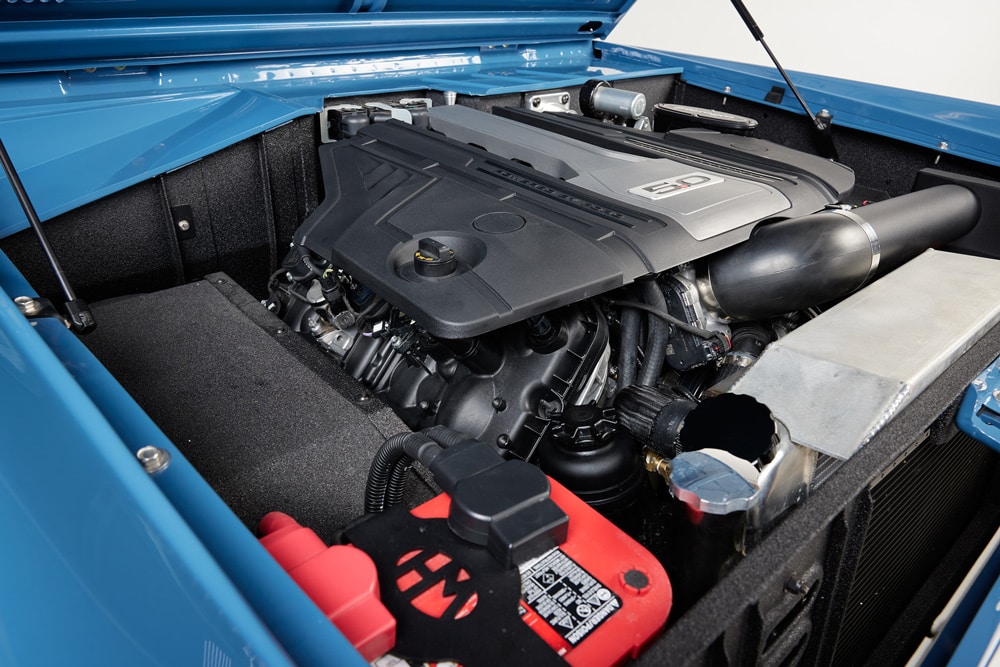
Engine Replacements and Their Impact on Mileage
Replacing the original engine in your Bronco with a newer one can significantly improve gas mileage due to advancements in technology and design.
The Coyote Engine
Replacing the original Bronco engine with a modern Ford Coyote engine can result in an estimated increase to 18 mpg, due to its advanced fuel injection system and improved power-to-weight ratio.
If you’re interested in a Coyote swap, use Krawler’s Edge Early Bronco Parts to make it a seamless integration to your OEM Bronco frame.
The 2.8 Cummins Turbo Diesel
The 2.8 Cummins Turbo Diesel engine offers the added advantage of better torque, while also increasing the average gas mileage to around 28mpg.
The 2.3L EcoBoost Mustang Engine
The 2.3L EcoBoost Mustang engine, another Bronco engine replacement option, offers a balance between performance and fuel efficiency, bringing the average to 20 mpg.
The Influence of Tire Size and Kind on Gas Mileage
The type and size of your Bronco’s tires can also influence its gas mileage.
Tire Size
Larger, wider tires can reduce fuel efficiency because they create more rolling resistance and wind resistance. Conversely, smaller tires can improve gas mileage but may affect the Bronco’s off-road performance and aesthetics.
Tire Type
Off-road tires, with their aggressive tread patterns, can reduce gas mileage due to increased rolling resistance. On the other hand, all-season or highway tires, with their smoother treads, tend to provide better fuel efficiency.
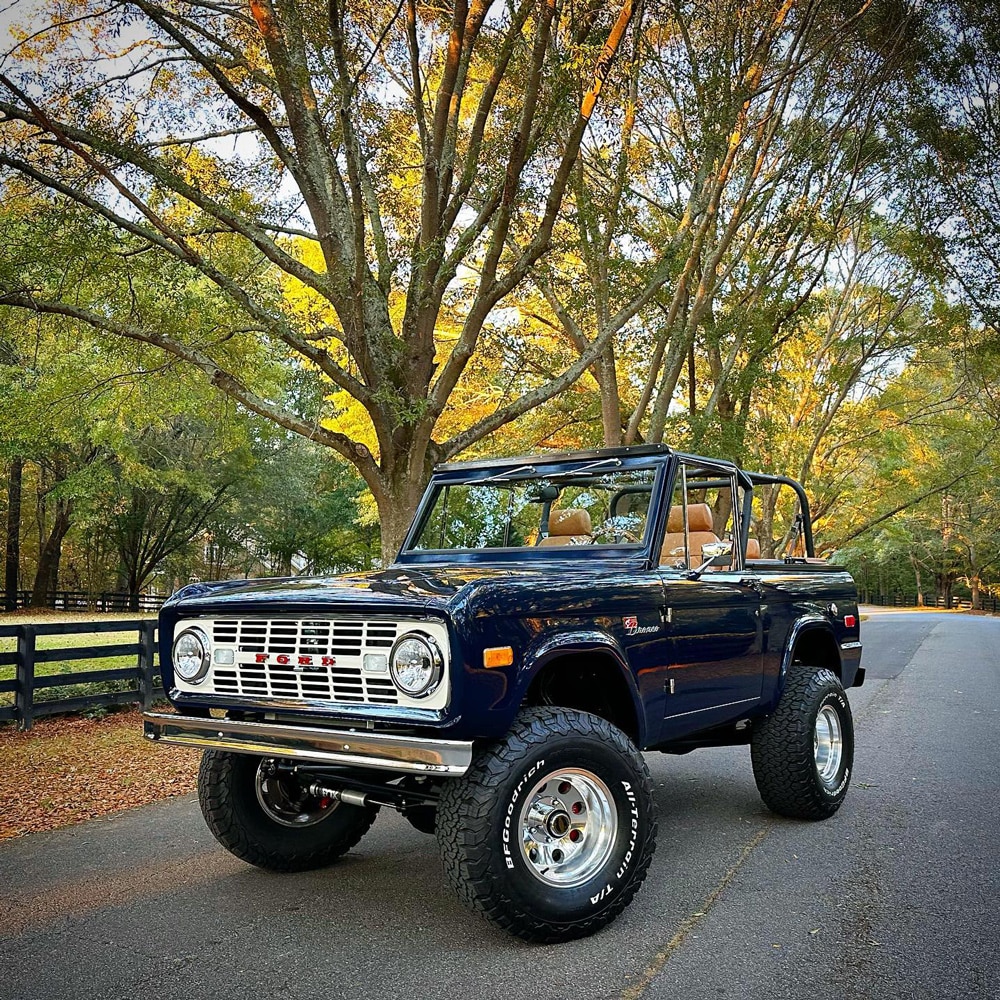
Photo Credit Vintage Broncos
How does the Mileage of the Classic Bronco Compare to the 2021 Ford Bronco?
When comparing the classic early Ford Bronco (1966-1977) to the modern 2021 Ford Bronco, several aspects come into consideration including design, performance, technology, and fuel efficiency.
Performance
In terms of performance, the new Bronco offers two modern engines that get better mileage than the Classic Ford Bronco engines.
It comes with a standard 2.3-liter EcoBoost I4 that produces 270 horsepower and 310 lb-ft of torque, and an optional 2.7-liter EcoBoost V6 that generates 310 horsepower and 400 lb-ft of torque. In contrast, the classic Bronco offered a series of inline six-cylinder and V8 engines with lower horsepower and torque due to the technological limitations of the era.
The Early Bronco wasn’t really designed for highway driving while the new Bronco gets a decent highway mpg.
Fuel Efficiency
The 2021 Ford Bronco delivers better fuel economy than the early Bronco due to advancements in engine technology. While the exact mileage can vary based on the engine type and vehicle configuration, the 2021 Bronco is estimated to offer about 20 mpg in the city and up to 24 mpg on the highway with the base 2.3-liter engine. In comparison, the early Bronco models ranged in the vicinity of 12-18 mpg based on the specific engine and configuration.
Conclusion
Enhancing the fuel economy of your classic Ford Bronco requires a comprehensive understanding of various factors, including the engine type, its condition, driving habits, and tire choice.
A modern engine swap can significantly improve gas mileage, while a careful selection of tires can optimize fuel efficiency without compromising too much on performance. Ultimately, the choice will depend on your needs, whether that’s maintaining the Bronco’s vintage charm or creating a unique blend of classic design and modern efficiency.
If you’re looking to update your engine you can purchase a modern 5.0 Coyote or 2.8 Cummins Turbo Diesel directly from us at Kincer Chassis!
*These numbers are only estimates and should be used as general guidance. For accurate information, it’s best to reference specific studies or data from vehicle tests.

